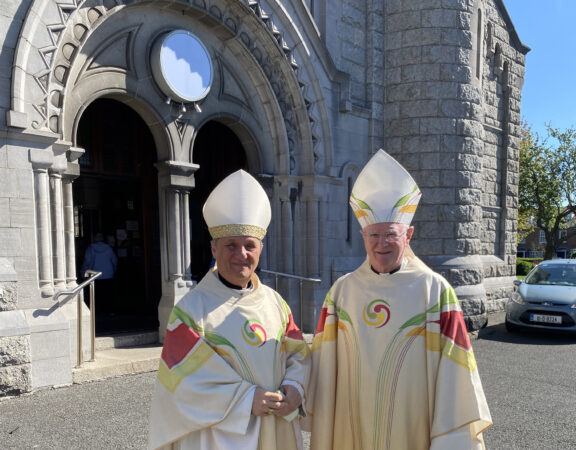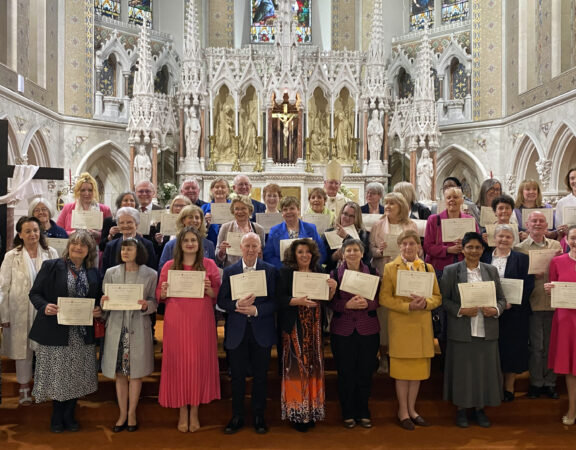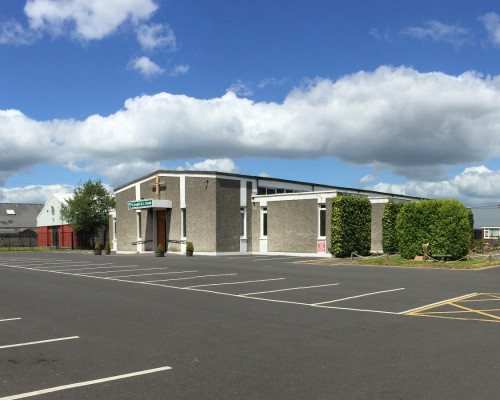Fifteenth Sunday of the Year 2018
PRIESTLY ORDINATION OF TWO SALESIAN DEACONS
Homily Notes of Most Rev. Diarmuid Martin
Archbishop of Dublin
Saint Patrick’s College Maynooth, 15 June 2018
Introduction
I join in the joy of the Salesian Fathers and the wider Salesian family as today we come to invoke the Holy Spirit, through the laying on of hands and the solemn prayer of consecration, on Dominic and Paul, two Vietnamese candidates for ordination to the priesthood in the Salesian Congregation.
Don Bosco had a missionary heart. He knew how the love of Jesus, that was the inspiration of his own entire life, was a gift that can be brought to any culture and that enriches any culture.
We remember the Church in Vietnam and pray for its members who often in the face of challenges live that message of the love of God revealed in Jesus Christ through a life of service. We pray especially for the candidates and their families some of whom are here with us this morning.
Homily
Don Bosco was a remarkable man. His work with young people is legendary. Living in the mid-nineteenth century, he developed his own pedagogy and his own way of reaching out to the most abandoned young people. At a time when such young people were open to being abused in the labour market he stood by them and helped insert them in a healthy working environment. Remarkable for his time, he rejected a pedagogy based on punishment and worked to show how loving care can bring out the unique talent of each individual.
Don Bosco began his work in Turin in what was a time of great economic and cultural change. Industrialization and urbanization were giving rise to a divided society and young people were among the prime victims.
Don Bosco’s work with young people is legendary. He was however also radical in his models of pastoral activity. He realised that young people were missing from parish life so he began to encounter them in new ways. He met reached out to young people and met them where they were. He founded his Oratori that were places where young people could come together, socialize in a healthy manner, and be educated in the faith within the day to day realities of their lives.
The Church in Ireland today is facing similar changes. Irish religious culture is changing. The main body of the membership of Irish Catholicism and its leadership belong to an age and cultural group that is in many ways foreign to the culture of young people. The Irish Church needs to waken itself to the urgency of this situation.
This will not be easy. There is uncertainty about how to proceed. Just as Don Bosco encountered much resistance from the mainstream Catholic structures of his time, there will be a sort of passive resistance today. Change is painful. There is however no alternative. Catholics must learn new ways in which they can win young hearts for what the teaching of Jesus involves.
Some years ago, Pope Benedict noted the challenge by saying that the challenge for the Church today is: “to witness to God in a world that has problems finding Him”.
The Irish Church has to re-learn the ability to speak the language of faith authentically in a world where that language may be alien. The Church in Ireland needs a radical overall in its outreach in faith towards young people and where better to begin than by reflecting on the life of don Bosco.
The Gospel reading we have just heard helps us to understand better the mission that is entrusted to the two men we are about to ordain to the priesthood but can also help us think of what missionary activity in the Church means in today’s Ireland.
Jesus sends out the apostles. How did one become an apostle? How does one become a disciple today? There are no examinations or open competitions. There is no collection of character references or particular qualifications. Jesus speaks to us and calls us directly. There is no contract. We do not sign up and negotiate our own terms. Jesus calls us and he calls us just as unexpectedly as he called his first disciples. The call is always surprise and requires that we respond without compromise.
The response of the believer to the call of Jesus is total. The believer in Jesus is called to focus totally on Jesus. He or she has no need of anything beyond the basic essentials that are needed for decent living. We see that in the instructions given to the apostles for their first missionary journey. The life of the Christian and especially of the priest must by its nature renounce the superfluous and be lived with evangelical simplicity.
The terms of the call of the disciples are the very opposite to a consumerist driven rushing for the non-essential and the almost divinisation of the superfluous and the transient in life.
Jesus sends his disciples out two by two. This is not for simple companionship. It is to remind them in their preaching that they are not preaching themselves or their own doctrine, as many of the wandering preachers at the time of Jesus would have done.
The preaching of the Gospel takes place within a community context. Being a disciple of Jesus is not about reading a book about Jesus and being impressed by it while sitting in our own living room. Jesus is present where two or three are gathered in his name. Christians are called to form communion.
That communion is never a closed communion. Christian belief is always missionary. “Going out” is an essential part of being a believer. It is an essential part of being a Christian particularly today, when the life of many Christians and of indeed the Church community has become fearful and timid regarding faith.
Like the apostles, the Christian in our time is one who is sent out to bring the good news. The apostles were also sent out “with authority over unclean spirits”. What does that mean today? The Church must not only be the community of those who believe in the love of God revealed in Jesus Christ but the Christian must spread that message of Jesus in such a way that it enables individuals and the community to be freed from those things in our culture which entrap and burden them. Love frees, while introversion eventually leads to narcissism of self-centredness.
The Church as a faith community should be active and present in society, drawing attention to suffering and repression of any kind and being alongside those who suffer. Christian belief has and will always have its contribution to bring to the formation of society.
Dominic and Paul you are called to priestly ordination at a crucial moment in the life of the Church but also at a challenging and beautiful moment. You are called to act in persona Christi and to speak the word of God through the way you live. You are called to celebrate the Eucharist and to ensure the presence of Jesus within his believing community. You are called to be men of prayer and to lead others to know how to pray. You are called to be faithful ministers of the love of God to all who suffer at the hands of the demons of our time.
The style of life of the one who announces and witnesses to the Gospel of Jesus is in fact not extraneous to the message itself. The Christian life is not imposed; it is transmitted through the witness of those who demonstrate in their own life what being captured and fascinated by Jesus means in the search for true fullness of life.
May the Lord who has begun the good work in Dominic and Paul bring it to fulfilment.









